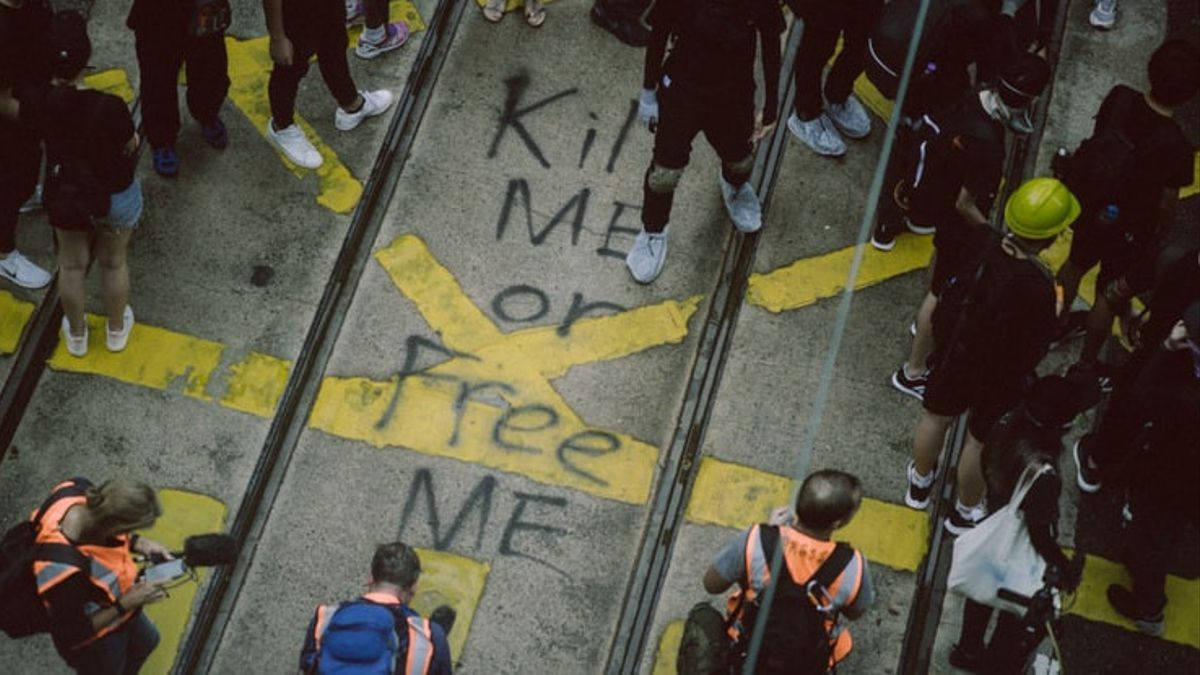JAKARTA - Political unrest in Hong Kong has a long tail. Pun Ho-chiu, a man who once threw eggs at the Hong Kong police station, will be in prison for 21 months. The sentence was handed down by the Hong Hong court to suppress political differences in Chinese territory.
Launching CNN, Friday, November 27, the judge on duty, Winnie Lau, thinks that egg throwing is not a threat. China responded to Pun Ho-chiu's punishment. China considers those who harass the police should be punished as severely as possible.
The Chinese government has also tightened its grip on the semi-autonomous city this year. The Chinese authorities will introduce a new National Security Act for Hong Kong. This was triggered by China's distrust of judges in Hong Kong.
Not only that. The Chinese government also views the judges as too lenient and sympathetic to the protesters. The pro-Beijing newspaper in Hong Kong, China Daily criticized that in theory judges should not take a political side in court.
The Hong Kong Bar Association is against China's stance. In their statement, they deplored the irrational and uncontrolled attacks on Hong Kong's judiciary by China. They also urged the media to stop inflating and speculating about the political beliefs of the judges.
China's influence, however, is still great. Chief Justice Geoffrey Ma immediately dismissed District Court judge Kwok Wai-kin. The judge was considered to be pro protesters.
"Judges have a responsibility under the Constitution, which is the right of society, to exercise the power of an independent judiciary by hearing cases fairly and impartially, without fear or assistance," Ma said in a statement.
Pros and cons of the National Security LawHong Kong has long chosen its own rules of justice. This is what makes Hong Kong different from China. In China, courts must submit to the wishes of the ruling Communist Party. In that condition, usually about 99 percent of the cases that were brought up were guilty.
However, Hong Kong's independence in legal matters is further limited by the new National Security Law. Last week, the entire democratic opposition even withdrew from the city's legislature. The trigger was none other than the Chinese government that had moved to expel members of parliament who disagreed.
Because of the National Security Act, the Hong Kong government was forced to immediately ask all civil servants to pledge allegiance to the rule. Allegedly this is a sign that Hong Kong will move towards the same justice system as China.
One of the top Chinese officials in Hong Kong, Zhang Xiaoming, revealed that law reform is necessary for the city's judiciary. Patriotism, said Zhang, must come first before talking about democracy, freedom and human rights that were previously echoed by the people of Hong Kong.
"We have to defend the city's rule of law, but we also have to maintain the national constitutional order," said Zhang.
In line with Zhang, Hong Kong Chief Executive Carrie Lam said the National Security Act already had the desired effect. The law is considered highly effective in restoring stability in Hong Kong and ending protests.
Lam added that the Hong Kong Department of Justice will continue to demonstrate its identity as a center for the implementation of neutral and effective international law. However, the new National Security Law could also ensnare lawmakers who violate oath-taking. Moreover, those who support the protesters.
Instantly, a wave of protests went straight to the Chinese government. one of the loudest to express his dissatisfaction was the British Foreign Minister, Dominic Raab. According to him, Hong Kong's independent courts are more suitable than those designed by the Chinese government.
"Hong Kong's independent judiciary is the cornerstone of its economic success and lifestyle. The new National Security Law stipulates that the Chief Executive of Hong Kong, not the Chief Justice of the Supreme Court, will appoint judges to hear national security cases," said Raab.
"Apart from the provisions in the National Security Act that allow mainland authorities to take jurisdiction over certain cases without independent oversight, and to try these cases in Chinese courts, this move clearly risks undermining the independence of Hong Kong's judiciary," he concluded.
The English, Chinese, Japanese, Arabic, and French versions are automatically generated by the AI. So there may still be inaccuracies in translating, please always see Indonesian as our main language. (system supported by DigitalSiber.id)










